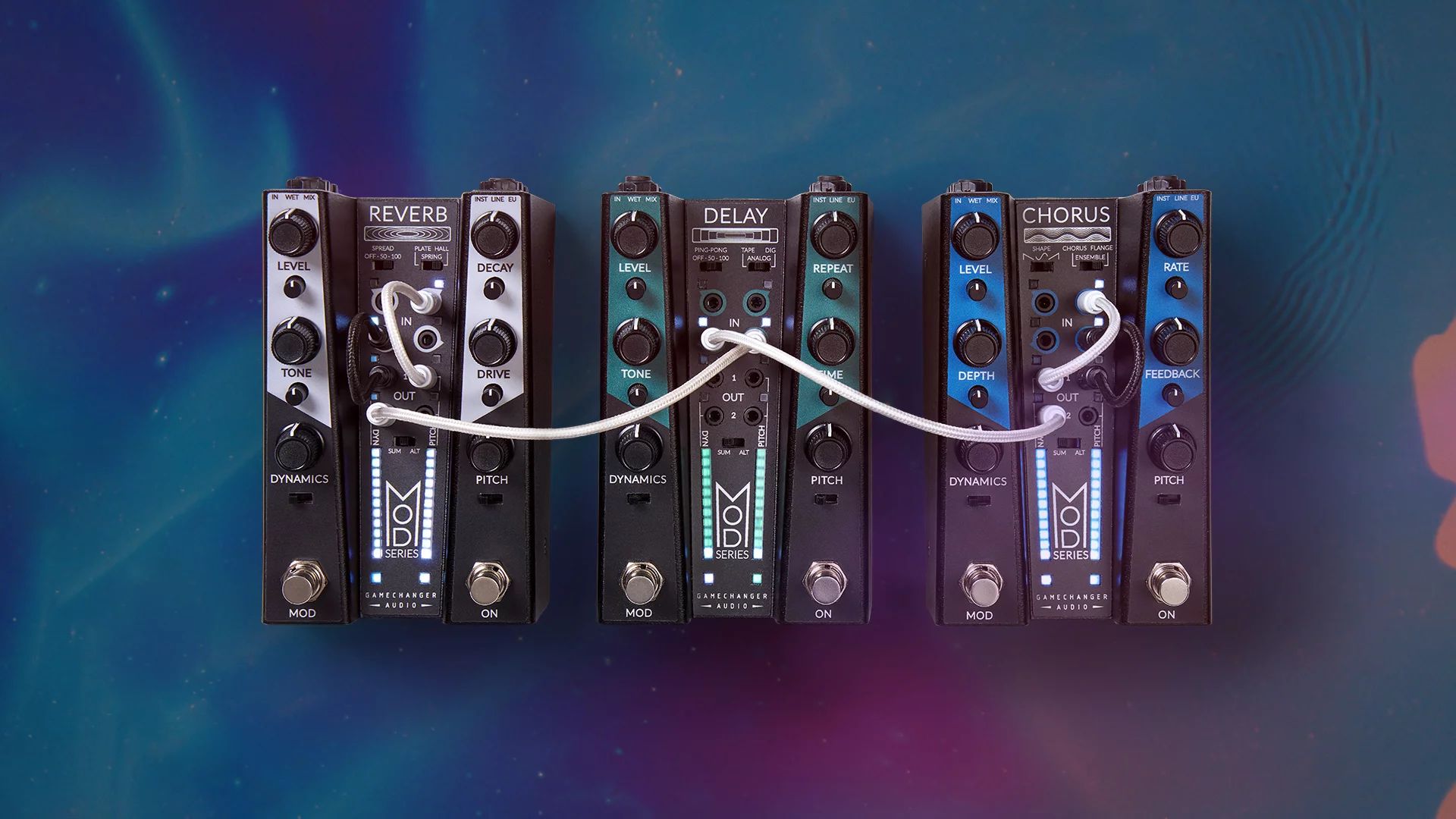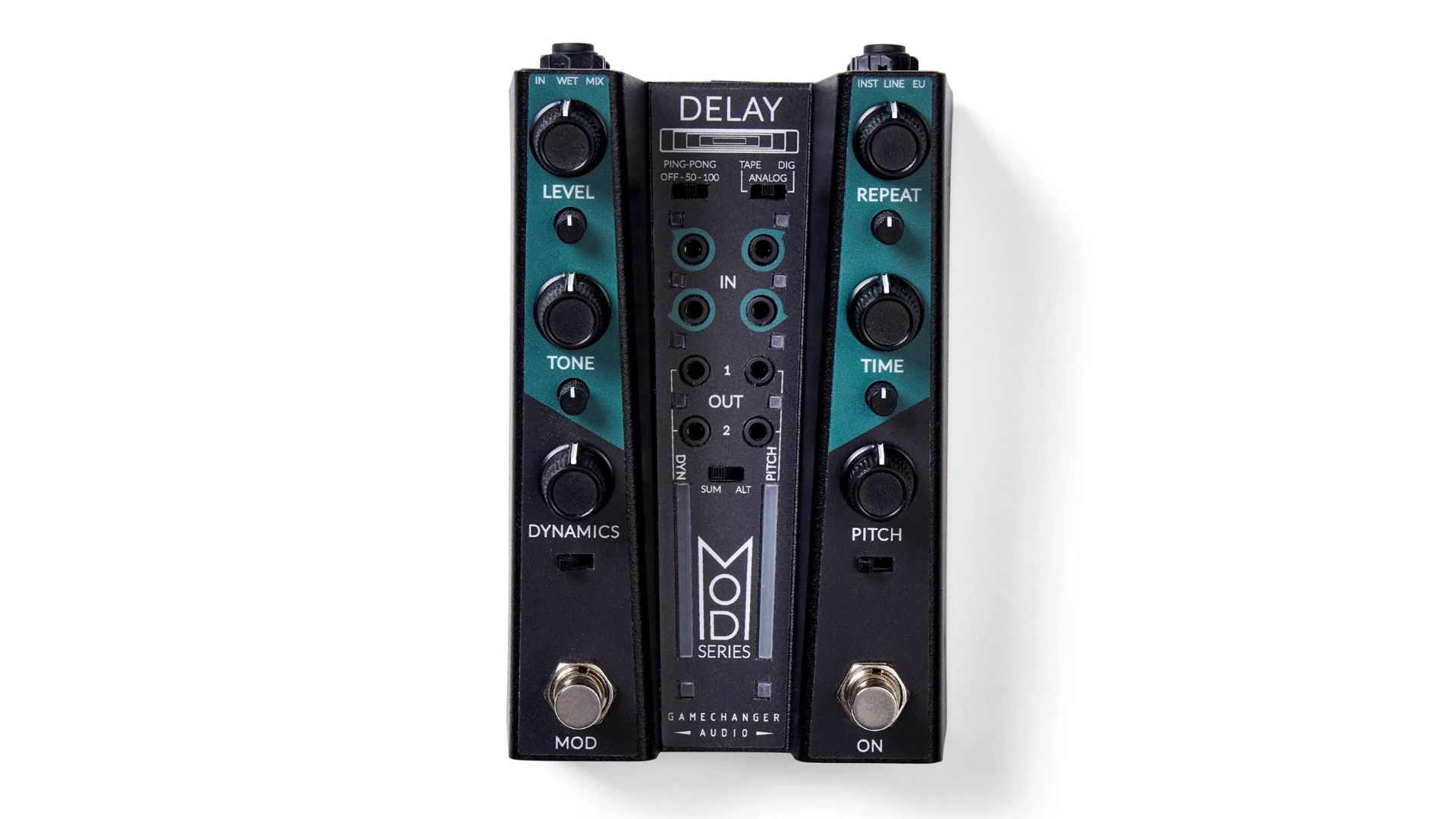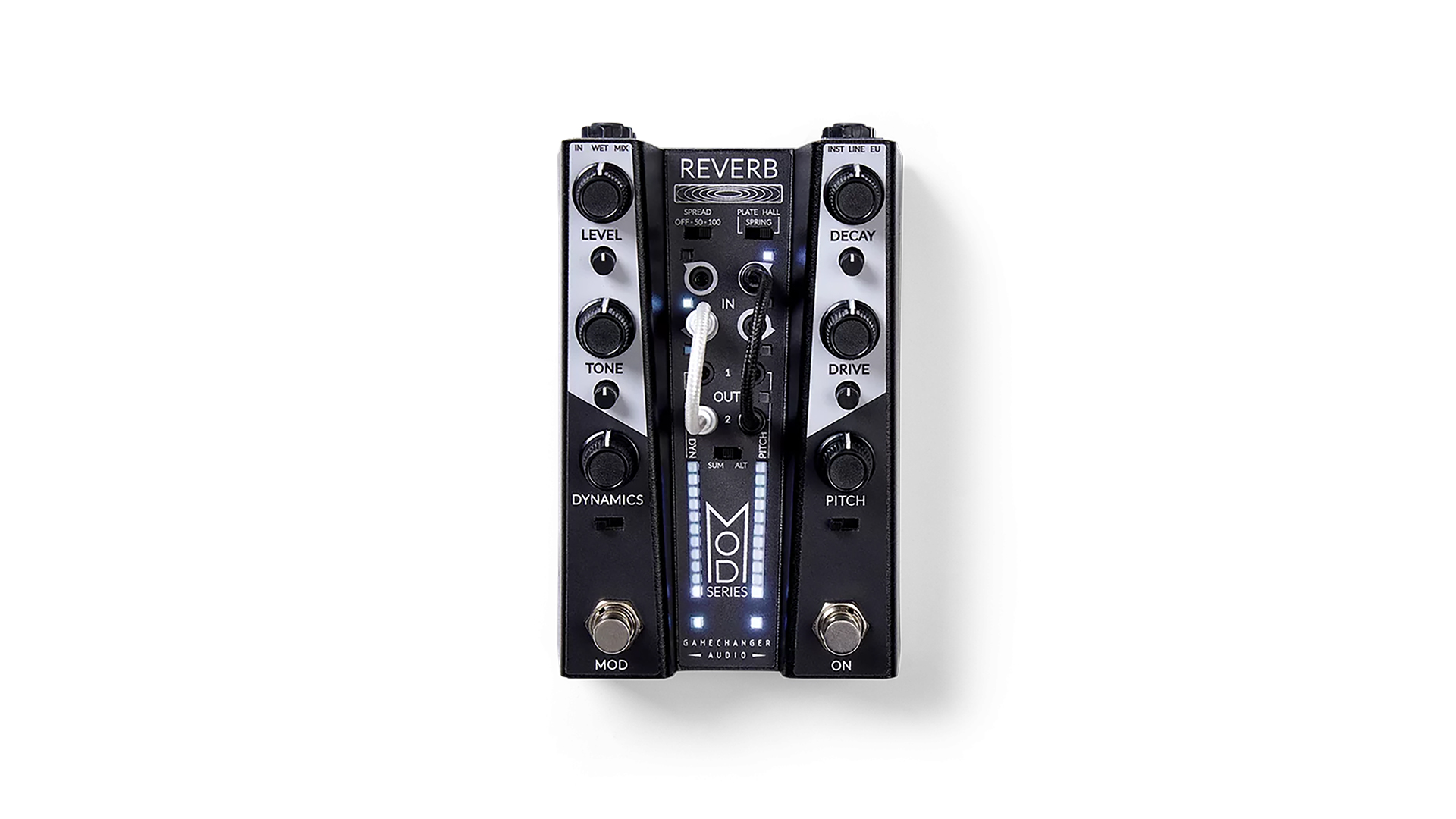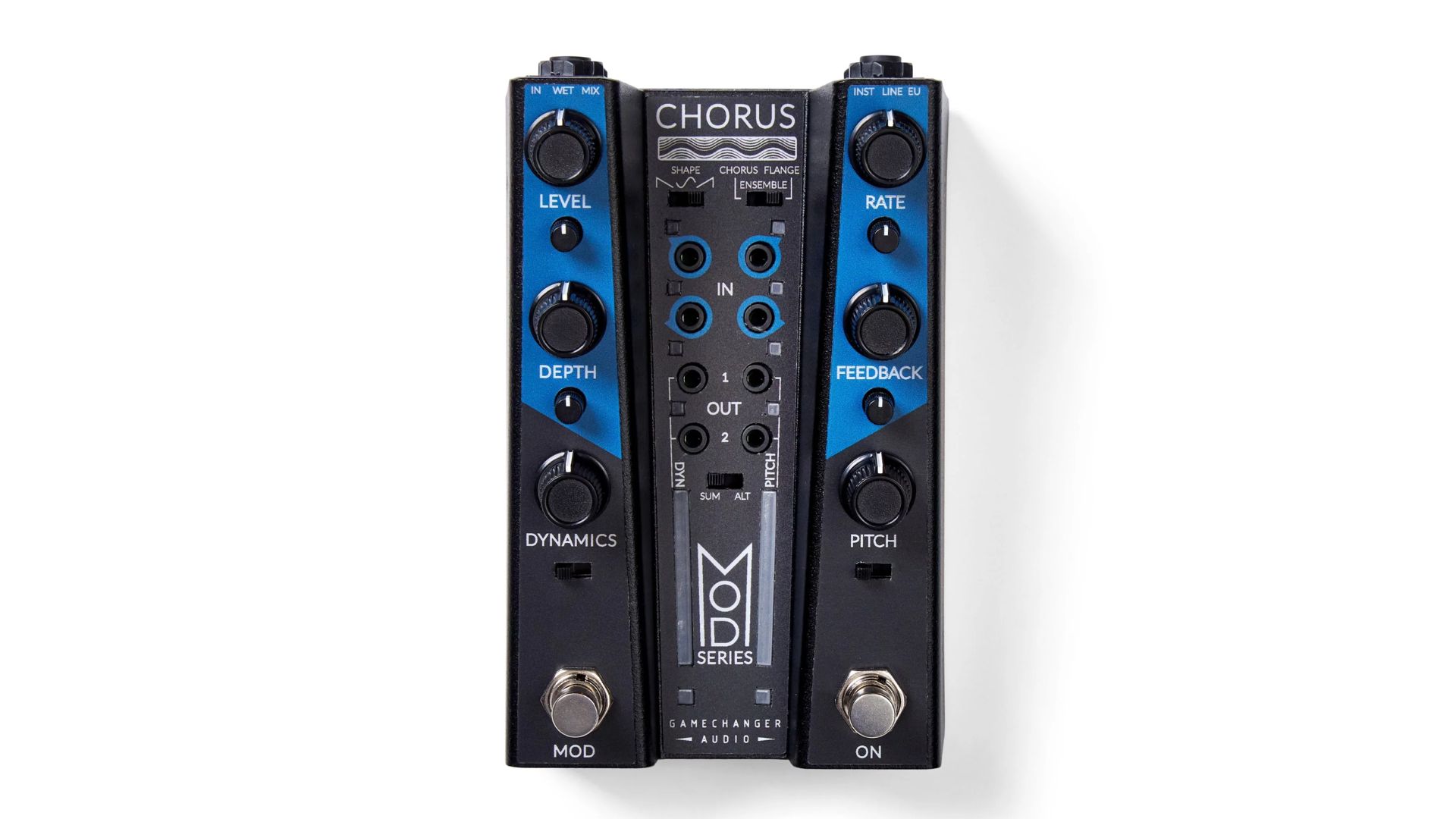NAMM 2024: “Become the architect of tones and textures that respond to your performance in real-time”: Gamechanger Audio’s new player-responsive MOD Series pedals can literally be wired like a modular synth
The new range, which includes a delay, reverb and chorus, matches “classic pedal design with modern synthesis” for pedals where your performance becomes part of the effect

NAMM 2024: When your brand name has the word 'gamechanger' in it, it goes without saying that you’re going to be expected to constantly surprise and challenge industry standards.
But with its latest trio of creations – which form the all-new MOD Series – Gamechanger Audio has seemingly done just that, bringing a fresh, personable twist to three classic effects.
With the MOD collection, the brand underlines – and pokes fun at – the belief that “tone is in the fingers” with a series of pedals that perform uniquely in direct response to the player’s performance. Oh, and they can literally be wired like a modular synth.
As such, the touch, dynamics and note choices of the player “become the primary architects of sound, creating tones and textures that evolve in real-time with their performance”. This somewhat sci-fi marriage of sound design and expression will surely excite those looking for something a little more 'out of the box', tonally speaking.

The delay pedal features tape, analog and digital algorithms with four controls manipulating its level, time, feedback and tone. There are three ping pong options, spanning 0%, 50% and 100%, and it also features MIDI or analog clock synchronization, as well as tap tempo to lock the effect in with a stomp or two.
Over to the reverb, and it too delivers a trio of algorithms for plate, spring and hall-style reverbs. Its four controls allow players to fine-tune level, decay, tone and drive, and its three stereo spread settings offer the same percentage shifts – 0%, 50% and 100%.

The chorus, meanwhile, packs chorus, ensemble and flange modes, with its four controls set for tweaking level, depth, rate and feedback. Versatility is again key here, with three shapes waiting to be unleashed: sawtooth, sine and ramp.
All the latest guitar news, interviews, lessons, reviews, deals and more, direct to your inbox!
With a patch cable, playing dynamics can be hooked up to the effects control. For the chorus, only louder strums will feature the wavering sonics of the chorus, whilst the reverb gate time will increase when higher notes are played. With the delay, its time parameter will fluctuate when playing in a high register for some real acid trip-style tomfoolery.
Each pedal's dynamics and pitch signals can be individually adjusted and routed anywhere on the patch bay, allowing players to discover a bunch of unique playing modes. The pedals can also be patched into one another as a pesky way of making us want all three pedals (note: it’s working).

While Ernie Ball has previously taken the delay pedal down an expression pedal format, the MOD series comes in with a different tact.
Front on, these unique pedals cut a unique silhouette. On the input 'tower', you'll find jacks for stereo and mono in, and auxiliary inputs for track and MIDI/clock. There's also a three-way toggle for Line, Eurorack and Instrument In.
Head over to the output 'tower' and there are jack outputs for stereo and mono, as well as an aux for track out. Switchable level functionality offers input level and dry sound, input level and killdry, or a wet/dry blend. A standard 9v power input sits dead centre at the bottom of the pedal’s front.
All three of the pedals feature stereo and mono signal processing. Stereo routing is possible with regular TS mono and TRS stereo cables.
“This series emphasizes the artist's skill, allowing for the orchestration of effects through instrument play,” says Gamechanger Audio. “Targeted at sound explorers, the MOD Series offers a combination of easy-to-use interfaces and profound sound manipulation possibilities. The series challenges musicians to delve into their creativity and discover extraordinary sounds beyond the usual."
With its announcement, we’ve noted the use of the word “first.” That means we expect more pedals to join the MOD roster at a later date. Each pedal costs $299 and all three are available to order today.
The Latvian manufacturer adds the MOD Series pedals to its growing list of intuitive designs. That roster includes the Plus, the world's first sustain and sostenuto pedal and the electro-mechanical Motor Synth oscillator pedal.
It also teamed up with Fender for the Bigsby pedal – a polyphonic pitch shifter bender designed to reproduce Bigsby-esque string bends without the need to install the tremolo system on your guitar.
For more information about the MOD Series, head to Gamechanger Audio.
Keep up to date with all gear releases ahead of NAMM 2024, head over to our guide to the latest NAMM 2024 news.
A freelance writer with a penchant for music that gets weird, Phil is a regular contributor to Prog, Guitar World, and Total Guitar magazines and is especially keen on shining a light on unknown artists. Outside of the journalism realm, you can find him writing angular riffs in progressive metal band, Prognosis, in which he slings an 8-string Strandberg Boden Original, churning that low string through a variety of tunings. He's also a published author and is currently penning his debut novel which chucks fantasy, mythology and humanity into a great big melting pot.

